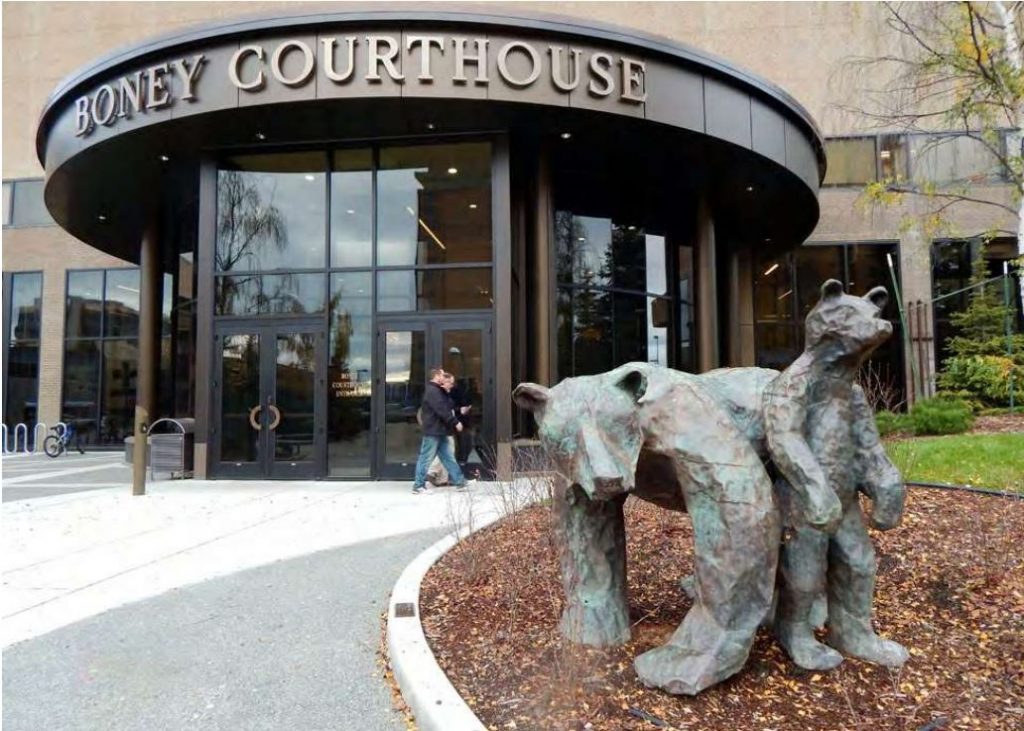
This morning, July 18, 2014, the Alaska Supreme Court issued its opinion in Simmonds v. Parks. The Court ruled the Minto Tribal Court’s order terminating Mr. Parks’ parental rights was entitled to full faith and credit and remanded the matter back to the superior court to be dismissed. Today’s decision ends the long-running case and reaffirms the respect owed to tribal courts when deciding issues that concern tribal children.
Background:
In June 2008, the Minto Tribal Court took emergency custody of an infant girl. After numerous hearings in which the parents participated, the Minto Tribal Court terminated the parental rights of the girl’s mother and father, Mr. Parks, and granted permanent custody of the child to the Simmonds who are relatives of the child’s mother. Mr. Parks did not appeal the decision in the Minto Tribal Court, but instead filed a series of lawsuits in federal and state court claiming, among other things, that the tribal court has no jurisdiction over him and that the Minto Tribal Court’s traditional practices and procedures violated his right to due process. Based on these arguments, Mr. Parks claimed that the tribal court termination order was not entitled to full faith and credit under the Indian Child Welfare Act (ICWA). The Simmonds argued that the termination order is entitled to full faith and credit, and they moved to dismiss the state court action, but this motion was denied by the superior court in November 2010.
The Simmonds petitioned the Alaska Supreme Court for review. The petition was granted, and the case was remanded to the superior court for it to make specific factual findings and legal conclusions. The superior court issued findings and concluded in part that tribal courts may not have jurisdiction over nonmembers and also suggested that the Minto Tribal Court’s traditional practices and procedures violated Mr. Parks’s right to due process. The Simmonds filed another petition for review with the Alaska Supreme Court asking that numerous aspects of this decision be reversed.
The State of Alaska intervened in the case and argued vigorously against the Minto Tribal Court’s jurisdiction and the use of the Tribal Court’s traditional law and processes. Attorney General Geraghty himself published an opinion piece on the case. These actions are consistent with the State’s 2004 Renkes Opinion and subsequent lawsuits in which the State has refused to recognize the authority of tribal courts over member children, including State v. Native Village of Tanana, Kaltag Tribal Council v. Jackson, and the ongoing State v. Central Council of Tlingit & Haida Indian Tribes of Alaska.
The Alaska Supreme Court’s Decision:
In its opinion today, the Alaska Supreme Court affirmed that the Minto Tribal Court’s decision is entitled to full faith and credit by Alaska courts. The Court affirmed that the Minto Tribal Court’s judgment on the custody of the child implicates interests that are at the core of tribal sovereignty and self-determination, and the Court rejected the State’s jurisdictional arguments to the contrary. In addition, the Court’s opinion is notable because it adopts the longstanding exhaustion of tribal remedies doctrine, which requires litigants to make use of tribal appellate courts before challenging tribal court decisions in federal or state courts.
NARF Staff Attorney Erin Dougherty described the Court’s analysis of full faith and credit and the tribal exhaustion doctrine as “a direct rebuke of the State of Alaska’s arguments, which sought to treat the decisions of tribal courts differently simply because they are Tribes. These arguments have no foundation in federal law and do a great disservice to the relationships between Tribes and the State of Alaska.” NARF Staff Attorney Natalie Landreth agreed, noting that “the Court’s decision today is entirely consistent with federal and state law.”
In this case, the Native Village of Minto did what it and the 228 other Tribes in Alaska have done since time immemorial—protect and care for their member children in times of need. The Native American Rights Fund calls on Governor Sean Parnell and Attorney General Geraghty to cease the State’s repeated efforts to oppose tribal courts and instead, work with Tribes to better protect all of Alaska’s children.
More blog posts

